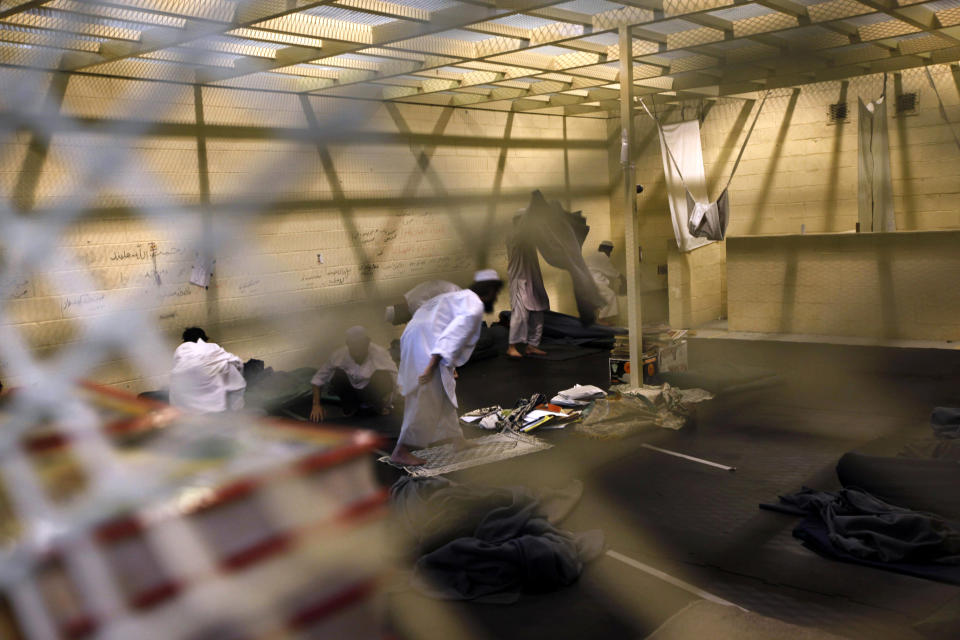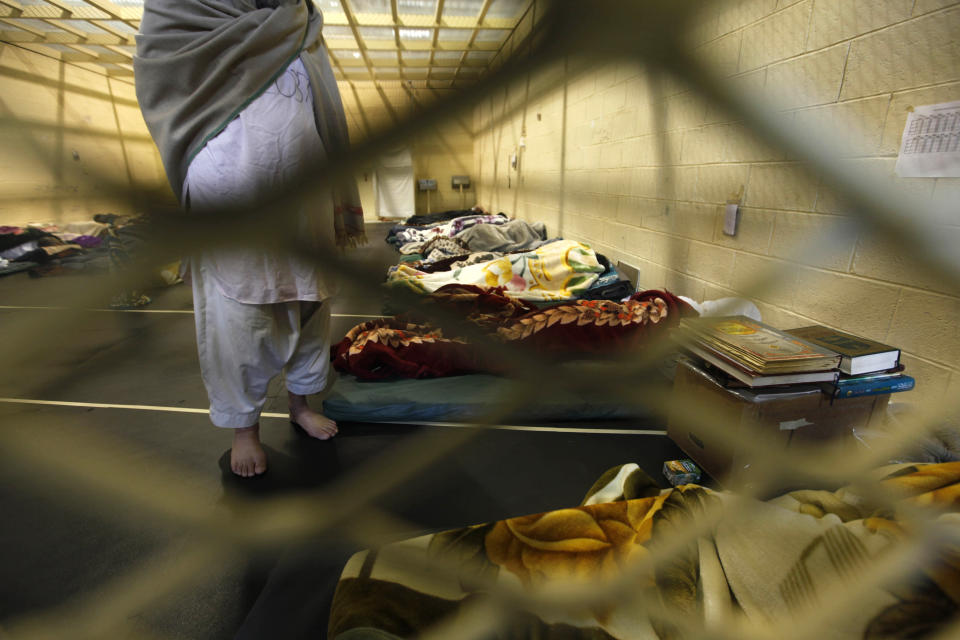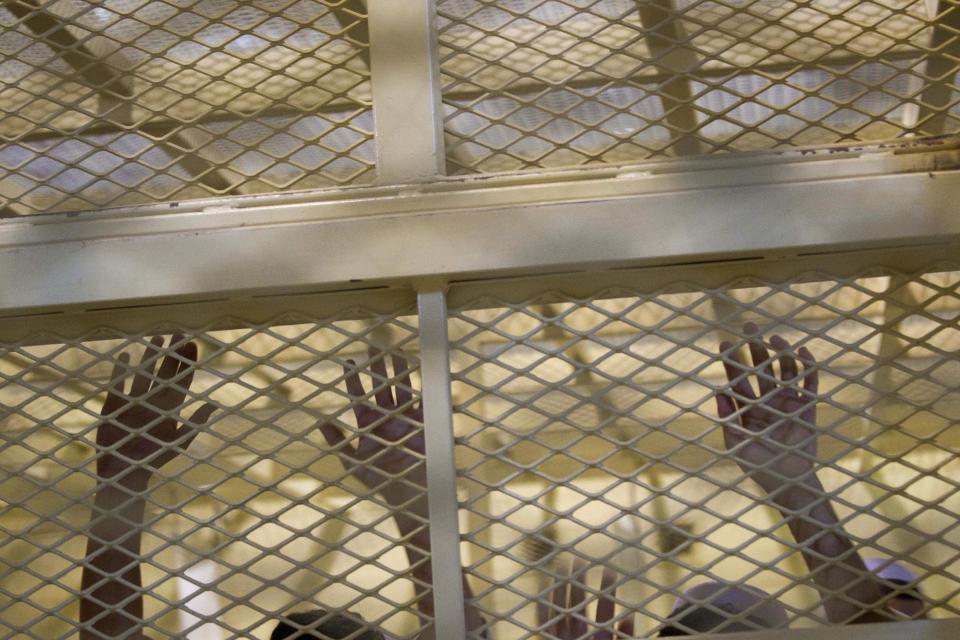US: Afghanistan to release 'dangerous' prisoners
KABUL, Afghanistan (AP) — The Afghan government has begun the process of releasing three dozen prisoners despite U.S. protests that they are highly dangerous, officials said Monday, the latest sign of deteriorating relations between the two countries ahead of the year-end withdrawal of most international combat troops.
The move to release the prisoners prompted an angry denunciation from the U.S. military, which said the 37 prisoners slated for release are "dangerous insurgents who have Afghan blood on their hands" with strong evidence against them to merit further prosecution or investigation — from DNA linking them to roadside bombs to explosives residue on their clothing.
President Hamid Karzai's government has rebuffed the U.S. claims that the men pose a serious risk of returning to violence if they're released, and used the issue to test his government's relationship with the U.S. as the two sides struggle over the question of a post-2014 foreign presence.
Karzai has stepped up his anti-American rhetoric since refusing to sign an agreement that would allow thousands of American soldiers to stay in the country after the end of the NATO-led combat mission. Instead, he has said he wants to wait to sign until after the country elects his successor in Afghanistan's April 5 presidential election.
The Obama administration is pressing him to change his mind, warning that Afghan forces still need training to fight a resilient insurgency.
Earlier this month, Karzai ordered the release of all but 16 of a group of 88 inmates at the Parwan Detention Facility that the U.S. says pose a threat to Afghanistan and the region. He recently criticized the facility, referring to it as a "Taliban-producing factory" where he said innocent Afghans are tortured into hating their country.
The U.S. military formally disputed the decision to release the prisoners but said Monday an Afghan review board had effectively overruled the challenge and was "releasing back to society dangerous insurgents who have Afghan blood on their hands."
In an apparent last-minute bid to sway public opinion, the U.S. military announced the release plans in a statement even before the Afghan government made it public.
"This extra-judicial release of detainees is a major step backward in further developing the rule of law in Afghanistan," the military statement said.
A senior U.S. military official told reporters in Kabul that the move came after Afghan officials indicated over the weekend that prisoners were being moved to a building used to house those preparing to released and reintegrated into society, making the release "more imminent." The military official spoke on condition of anonymity because he was not authorized to discuss the issue publicly.
Karzai's spokesman confirmed that the prisoners will be freed within one or two days and condemned the U.S. response.
"Foreign forces don't have any right to bring into question the decision of the judicial system of a country," spokesman Aimal Faizi said.
The U.S. has stressed it wants all 88 to face trial in Afghanistan, but Kabul has cited insufficient proof to hold them. American officials strongly disagreed.
Army Col. Steven Warren, a Pentagon spokesman, noted that 17 of the 37 were linked to the production of or attacks using roadside bombs. Three participated in or had knowledge of direct attacks wounding or killing 11 members of the Afghan security forces, and four participated in or had knowledge of direct attacks wounding or killing 42 foreign troops.
"These are bad guys," he said.
In another unusual move, the U.S. military also released more extensive details about those slated to be released.
Those included Abdul Ahad, reportedly a Taliban commander and roadside bomb expert who was captured in December 2012. The U.S. military said in a summary of the case against him that his fingerprint matched that found on a roadside bomb and his personal property tested positive for explosive residue.
A detainee identified as Abdul Rahman allegedly coordinated attacks against foreign and government troops in the volatile Helmand province in the south. The U.S. military said the evidence against him included a sworn confession that he was a member of the Taliban and reported the movement of foreign troops to the Islamic militant movement.
Fahar Zaman was detained in 2011 in relation to a roadside explosion, then released only to be recaptured in early 2013 after he was linked to a bombing and found with triggers, batteries and wires at the sign of his detention.
Others also tested positive for explosives residue and had Taliban propaganda and other scientific evidence against them that the U.S. said was undeniable.
The tit-for-tat exchanges on Monday underscore the increasingly anti-American tone coming from Karzai's corner.
Last week, Karzai blamed a U.S. military airstrike for a number of civilian casualties in eastern Parwan province. The U.S.-led international military coalition, however, provided a sharply different account of what happened during the two-day operation against insurgents, saying it was an Afghan-led effort and carried out at the request of the government.
U.S. ambassador to Afghanistan James Cunningham said that facts had been distorted both on the issue of the airstrike and the issue of the detainees.
While he would not speculate on why there has been "an uptick in the negativity" of recent comments coming from Karzai's government, Cunningham stressed the importance of returning to a U.S.-Afghan relationship based on fact.
"More care for fact and more care for civility in our dialogue would probably be a good thing," Cunningham said.
___
Associated Press writers Rahim Faiez and Amir Shah in Kabul contributed to this story.
___
Follow Cassandra Vinograd at http://twitter.com/CassVinograd




